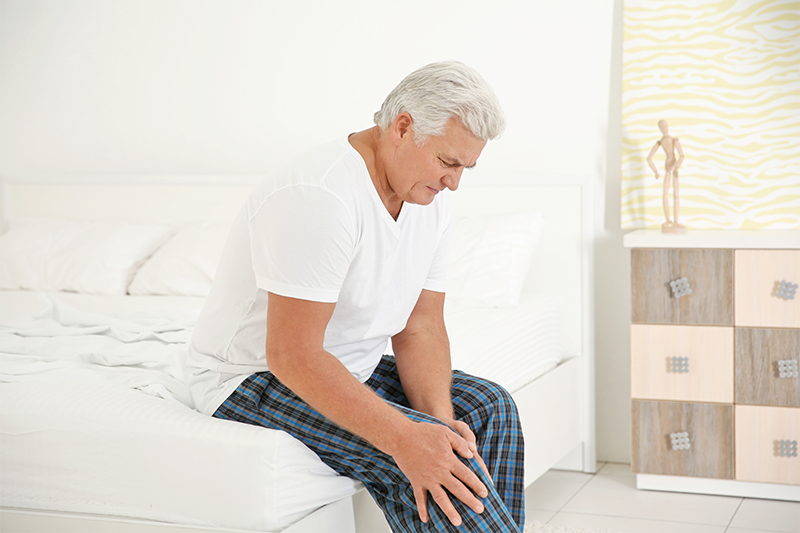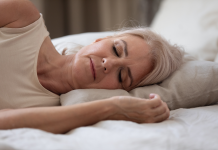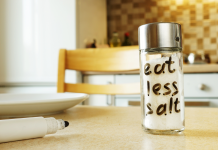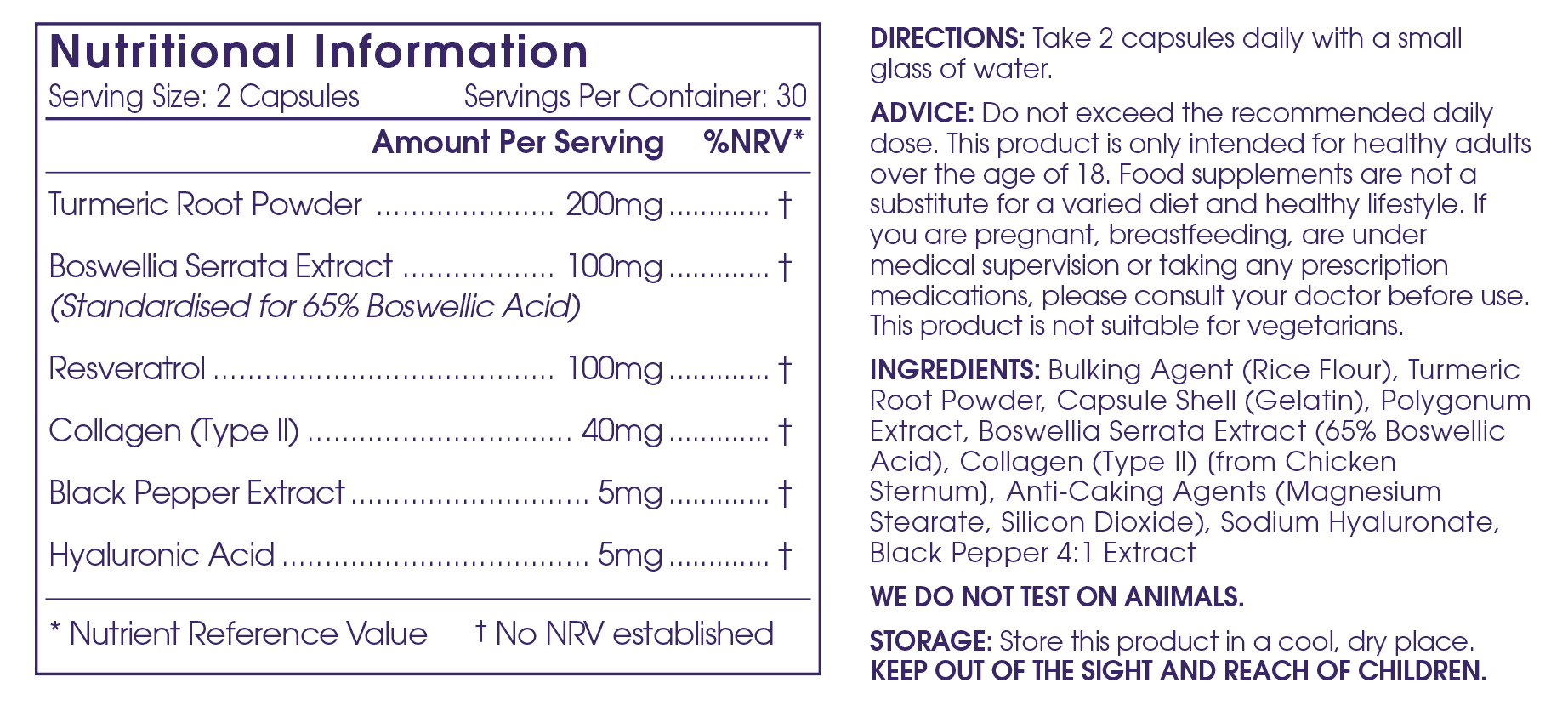When you wake up in the morning, does your lower back hurt? When you roll out of bed to get up, are your knees feeling stiff? If so, you’re not alone. Stiff joints are common to have in the morning. However, not that many people know why they get stiff joints. In this article, we will go over what the most common reasons for stiff joints are, as well as what you can do to avoid experiencing stiffness in the morning.
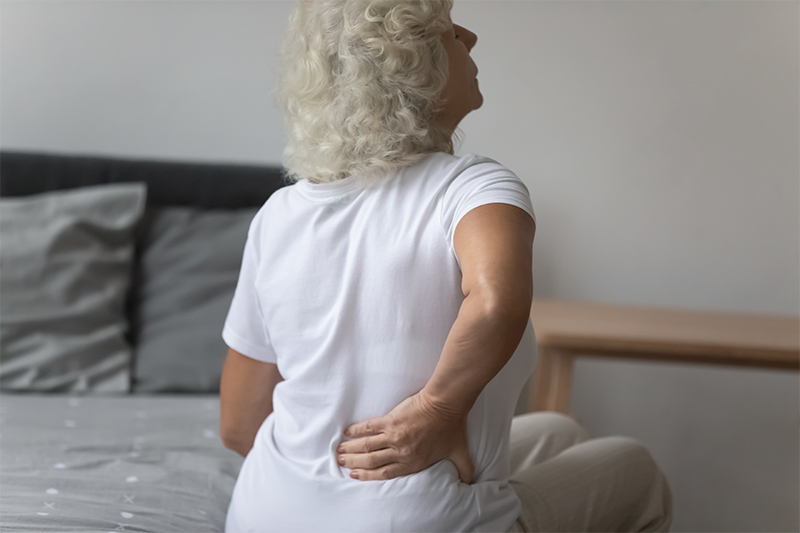
What Causes Stiff Joints in the Morning
Feeling stiffness in joints is usually due to joints going through normal wear and tear. Unfortunately, joints age in a different way than the rest of our bodies. A special material called cartilage is what provides cushioning for your joints. As time goes on, it can dry out and get stiff. When someone is overweight, there is additional wear and tear due to the extra weight being put on the joints. Also, over time, joints lose their natural lubrication. The muscles surrounding the joints can become weaker, and the tendons attached to them can get stiff. While you are asleep, everything tightens up, which is why you feel like you have stiff joints in the morning.
Some people automatically assume that having stiff joints means that they have arthritis. While this is a symptom of arthritis, it does not necessarily mean that you have it. If you are unsure whether the stiffness in your joints is due to having arthritis, you can talk to your doctor and get their expert diagnosis. Arthritis can lead to wearing out joints, feeling tight muscles around the joints, and experiencing inflammation within those joints.
Osteoarthritis is the kind of joint stiffness that occurs due to wear and tear, while rheumatoid arthritis is what happens when there is both swelling and inflammation involved. Both of these kinds of arthritis can lead to you experiencing joint stiffness in the morning. On average, morning joint stiffness lasts for approximately 10-15 minutes. Once you start moving around for a little bit, you get your joints more lubricated and warmed up, which is why you feel the stiffness go away. However, for some people living with rheumatoid arthritis, the stiffness can last over an hour.
How to Reduce Morning Joint Stiffness
While it’s difficult, if not impossible, to reverse joint deterioration due to aging, you can definitely reduce the amount of stiffness and pain you feel in your joints in the morning. Here are a few ways you can do so.
Have Comfortable Bedding
You will be spending a third of your life essentially motionless in your bed, and for long stretches of time. This is what will be the likely reason for your stiff joints in the morning. It is also why you should conduct an audit of your bedding to ensure it is comfortable. When it’s not, it will lead to experiencing more considerable pain and stiffness when you wake up in the morning.
The most significant factor to inspect is the mattress. Make sure it can hold up your entire body, without allowing your hips to sink in. Also, make sure it provides relief, along with comfort, for areas of your body containing pressure points. These include your knees, hips, shoulders, head, and other points of contact. You also want to make sure your back feels comfortable when you are resting on it.
This is a very subjective and personal decision that needs to be made, and it may require you to test several mattresses in person before you find the one that suits you. Also, you will notice your sleeping preferences change as you age, which is something to take into account.
On average, a mattress should provide you with 7-8 years of comfort. After that, you will have to get a replacement mattress. Mattresses that are less expensive and made using lower-quality materials will last less than this. It is essential to make this investment in your comfort, since it can reduce the morning stiffness you feel in your joints. The older you get, the more supportive of a mattress you will need.
Besides a mattress, you also need to make sure your pillows are comfortable. Otherwise, you’re going to wake up with a stiff neck. Ideally, your pillow will align your cervical spine in your neck, so that it does not bend while you are asleep. A pillow that is either too thick or thin will not maintain this spinal alignment. Not only will you experience pain in your neck, but your upper back will hurt as well.
To discover whether your neck is properly aligned, ask someone to look at how your neck appears while you lie down in your preferred sleeping position. As with a mattress, the most comfortable pillow will be a largely subjective decision you will need to make.
Once you have found the ideal pillow for you, remember to replace it every 18 months. Pillows lose their support and become less comfortable over time. A memory foam pillow can last upwards of three years.
Take a Joint Supplement
Besides comfortable bedding, one of the best decisions you can make to reduce joint stiffness is to take a joint supplement. An all-natural supplement that can help is JointFuel360. This is a popular supplement containing numerous natural ingredients.
Wrapping Up
Don’t wait until joint pain sets in. You can implement strategies for health and wellness over the long term. An active lifestyle, combined with a healthy diet and quality health supplements is a great way to help you keep moving!
* These statements have not been approved by the Food and Drug Administration. This product is not intended to diagnose, treat, cure, or prevent any disease.
SOURCES:
https://www.betterhealth.vic.gov.au/health/conditionsandtreatments/ageing-muscles-bones-and-joints
https://orthoinfo.aaos.org/en/staying-healthy/effects-of-aging/
https://www.healthline.com/health/osteoarthritis/understanding-aging-and-joints
https://health.clevelandclinic.org/5-best-ways-to-safeguard-your-joints-as-you-age/
https://www.healthline.com/health/improving-mobility-in-old-age
https://hcamidwest.com/blog/entry/aging-bone-joints
https://www.mayoclinic.org/healthy-lifestyle/fitness/in-depth/what-it-takes-to-be-agile-at-any-age/art-20390071
https://www.mountsinai.org/health-library/special-topic/aging-changes-in-the-bones-muscles-joints
https://www.webmd.com/pain-management/features/common-pains-of-age
https://www.bannerhealth.com/staying-well/expert/joint-pain-aging
https://www.physio-pedia.com/Effects_of_Ageing_on_Joints
https://orthoinfo.aaos.org/en/staying-healthy/smoking-and-musculoskeletal-health

